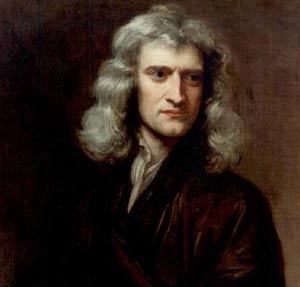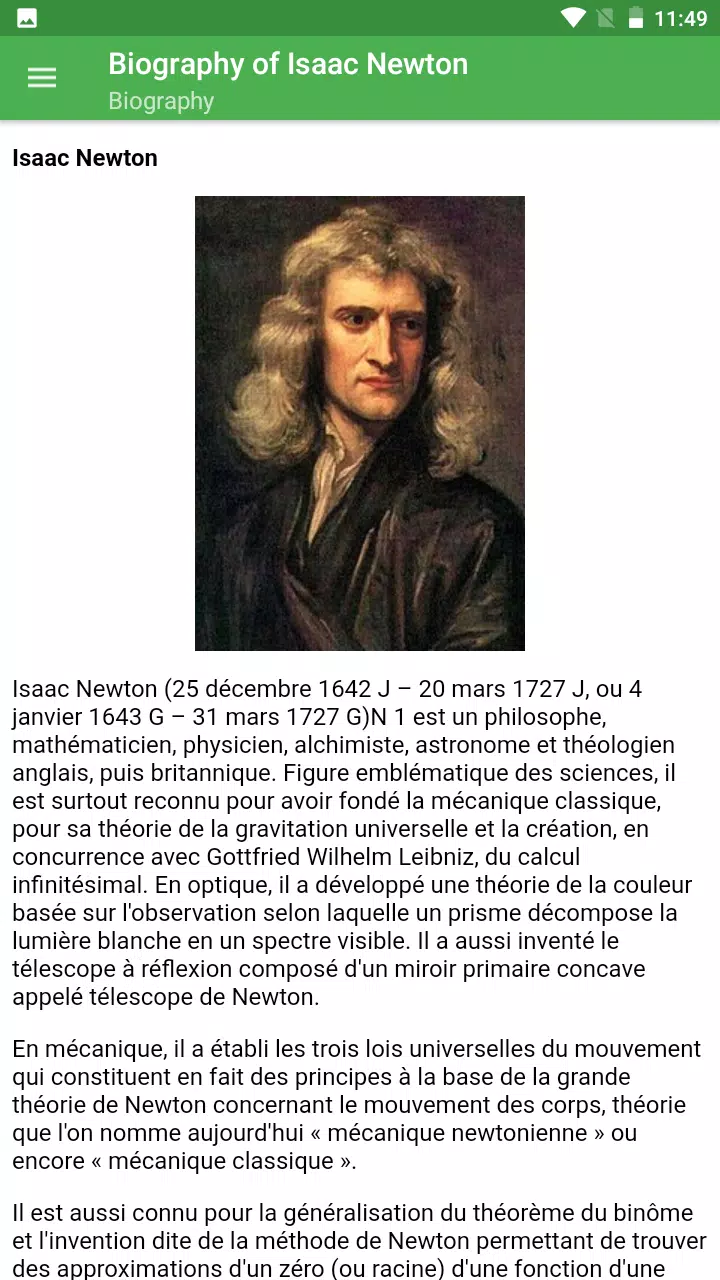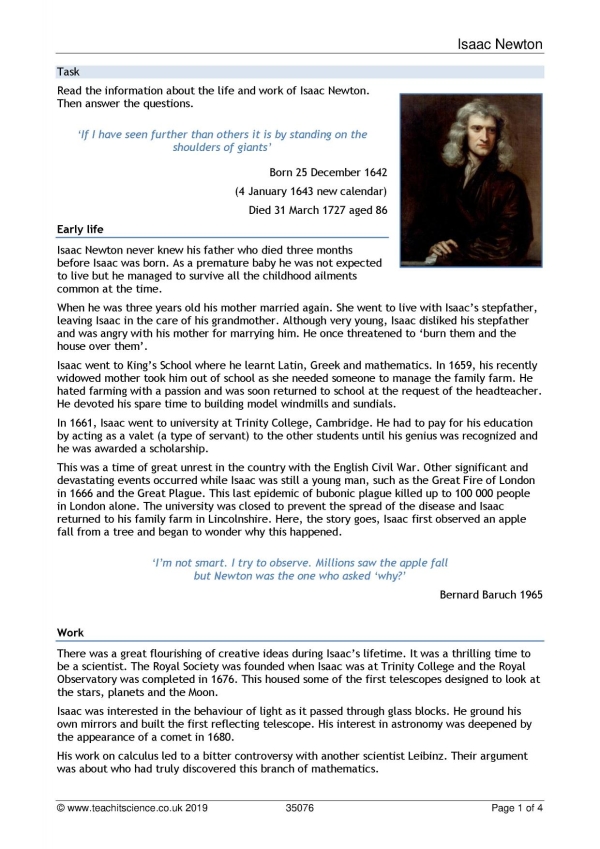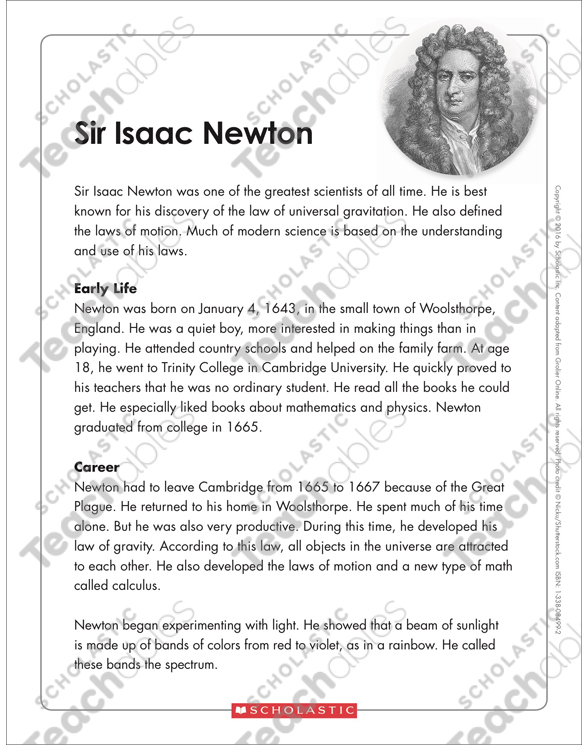Sir Isaac Newton was an English mathematician, physicist, and scientist who is widely regarded as one of the most influential figures in the history of science. He was born in Woolsthorpe, Lincolnshire, England on December 25, 1642 and was a child prodigy who began studying mathematics at a young age. Newton's contributions to science and mathematics include the development of the laws of motion, the development of calculus, and the discovery of the nature of light.
Newton received his education at the King's School in Grantham and later attended Trinity College at the University of Cambridge. At Cambridge, he studied mathematics, physics, and natural philosophy under the guidance of some of the leading scientists of the day, including Isaac Barrow and John Collins.
In 1665, Newton was forced to leave Cambridge due to the outbreak of the Great Plague, and he returned to his family home in Woolsthorpe. It was during this time that he made some of his most important discoveries, including the development of the laws of motion. These laws describe the relationship between a body and the forces acting upon it, and they form the basis of classical mechanics.
In addition to his work on the laws of motion, Newton also made important contributions to the field of calculus. Calculus is a mathematical method used to analyze and describe the properties of objects and systems that change over time. Newton, along with Gottfried Leibniz, developed the modern form of calculus, which is now an essential tool in many areas of science and engineering.
Newton's work on the nature of light was also groundbreaking. He developed the corpuscular theory of light, which proposed that light was made up of tiny particles, or corpuscles, that traveled in straight lines and could be reflected, refracted, and absorbed. This theory helped to explain many previously mysterious phenomena, such as the rainbow, and it laid the foundation for the development of modern optics.
In addition to his scientific work, Newton was also a member of the Royal Society, a prestigious scientific organization that was founded in 1660. He was elected as a Fellow in 1672 and served as President of the society from 1703 to 1727.
Newton's contributions to science and mathematics have had a lasting impact and are still widely studied and revered today. He is often referred to as the "father of modern science" and is considered one of the greatest scientists in history.








